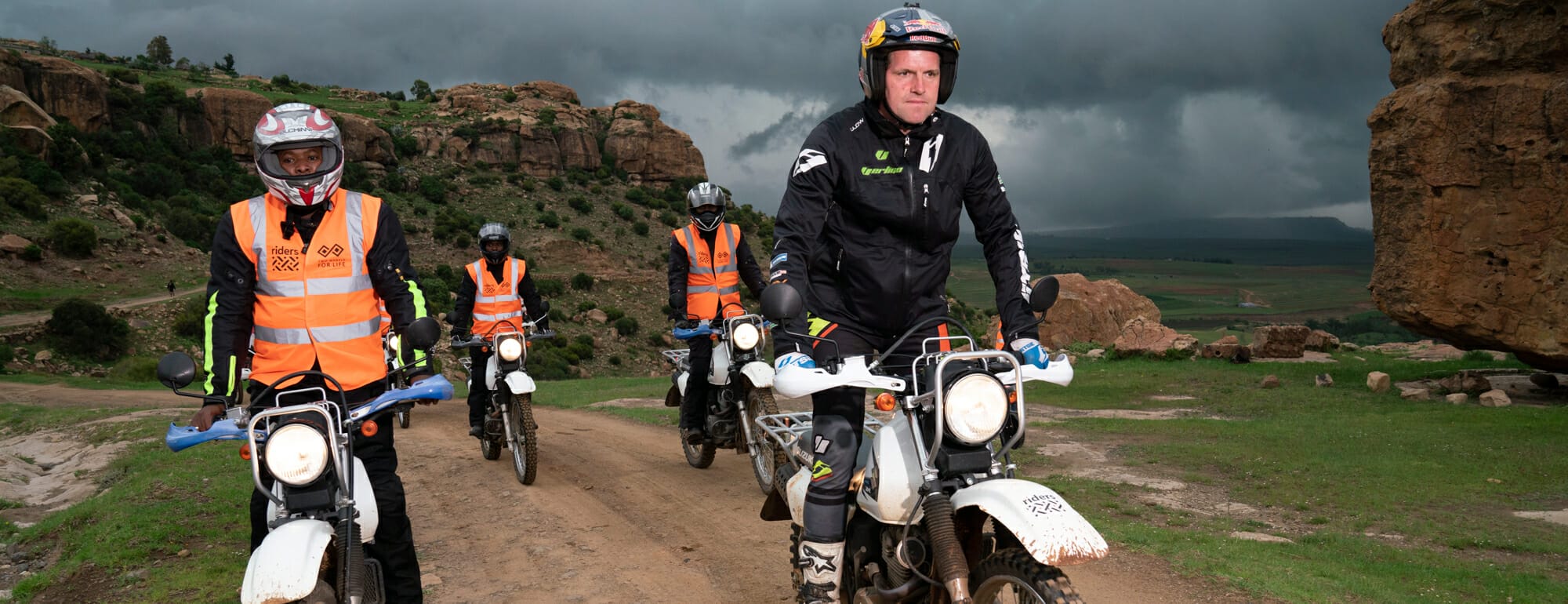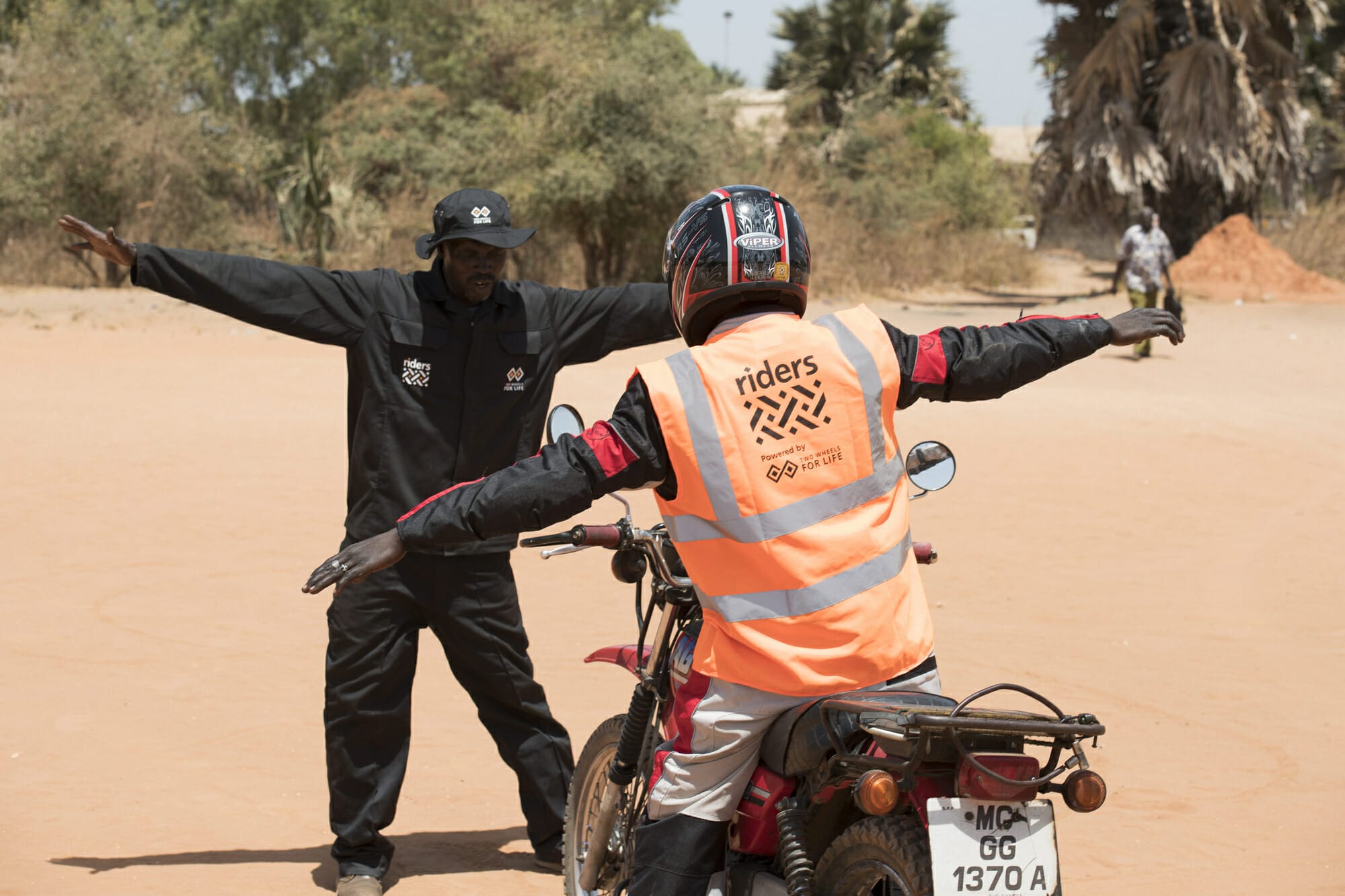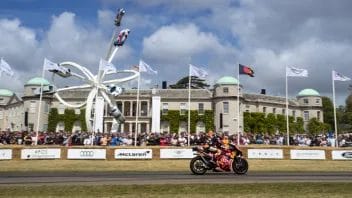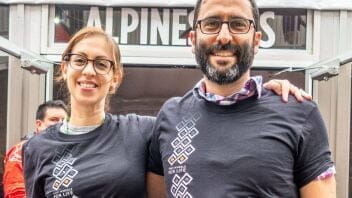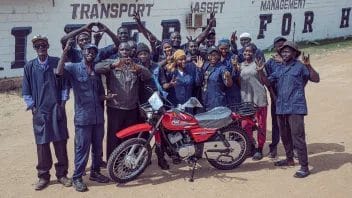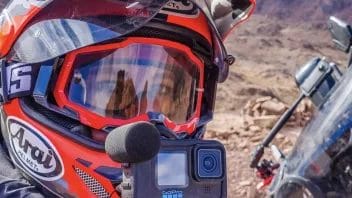Lampkin in Lesotho to Train Health Workers in World-Class Off-Road Riding
Twelve times Trial World Champion Dougie Lampkin travelled to this mountainous country to take on the unusual job of training health workers in extreme riding skills.
Dougie Lampkin has returned from Lesotho, a small country in Southern Africa, where he was training health workers in one of the Riders for Health (Riders) programmes supported by Two Wheels for Life.
Riders make sure health services and supplies reliably reach people in communities that, because of the extreme altitude, difficult terrain, lack of infrastructure and economic challenges, couldn’t otherwise access even basic healthcare.
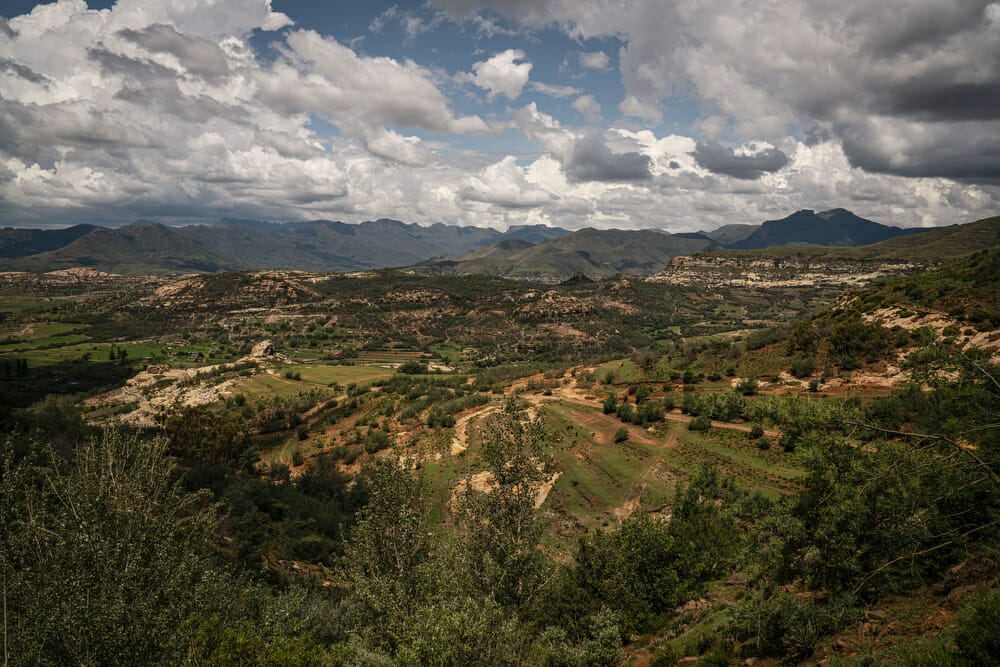
Lesotho is one of the most mountainous countries in the world. Its highest point is 11,425 ft (3,482 m) and its lowest point is 4,265 ft (1,400m).
Many communities are found at incredible altitudes with no proper road access, meaning health workers have to ride at the level of professional trials riders just to do their daily work.
“These guys are trials riders – they just don’t know they are!”
Two Wheels asked for his help to improve health worker’s off-road skills so that they can ride their motorcycles with greater confidence and do their jobs even more safely and effectively, providing life-saving services to their communities.
That’s where Dougie’s experience as a trainer comes in. Winner of multiple world championships, and awarded an MBE for his services to the sport, Dougie is a world-class rider and exactly the right person for the job.
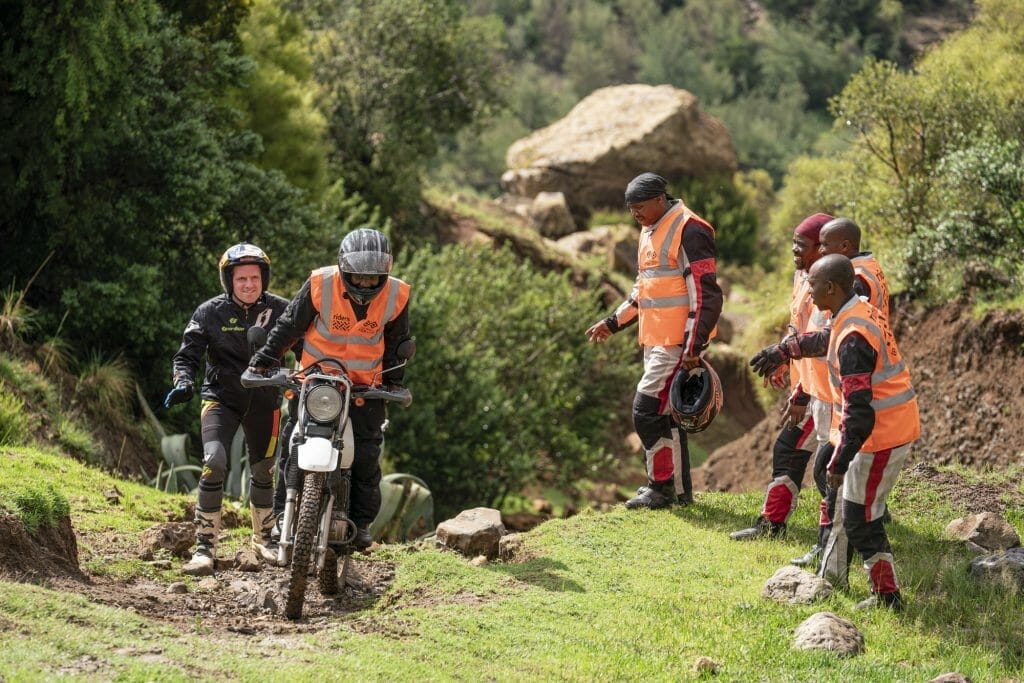
Scaling steep, rough terrain is just part of a motorcycle health worker’s day to day work in Lesotho.
So who are the health workers that motorcycle legend Dougie Lampkin is training? They are everyday heroes whose job it is to deliver health services to remote communities week in, week out using motorcycles.
Sample couriers transport medical samples and return test results so that diseases can be diagnosed and patients treated, which is essential in a country with some of the highest rates of TB and HIV in the world. And midwives take their knowledge, skills and supplies to women who can’t reach health facilities.
“Each of the riders has to reach their destination, whether it is a remote village or health centre. It really can mean the difference between life and death, especially for women and children in these areas.”
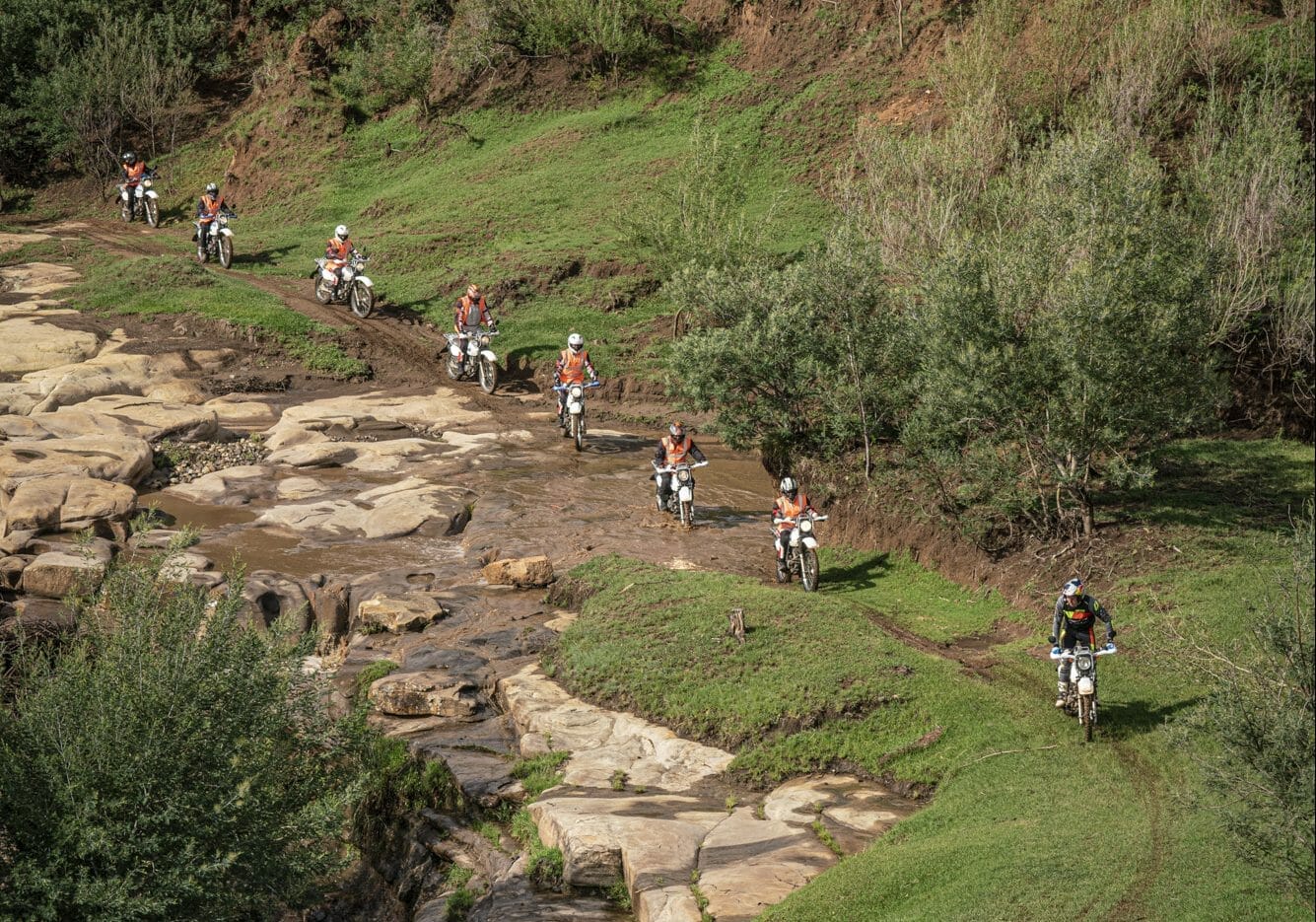
Health workers Thuso Khanare, Sipho Dangala, Retselisitsoe Sekatle, Setsabi Tikiso, Rethabile Rantja, Poopa Kumi Tsepang Foloko and Lesole Mokele show Dougie the routes they take in the course of their day-to-day work.
Dougie was introduced to the health workers in the capital Maseru, where he was surprised by their riding ability – some riders were good and some were really excellent! His job was to train them all to the next level.
“The standard of riding was actually much higher than I had expected. These riders are both brave and dedicated, given how tough the terrain is that they have to deal with. It was great to be able to share my many years of trials riding to help these guys improve the skills they already have.”
While following them on the routes they take 2-3 times a week, he could not believe the terrain they have to cover in conditions ranging from intense heat to blinding snow. He was humbled by their commitment to their communities.
“Helping local health workers to transport vital medical services to remote communities in Lesotho has been a great experience and something I hope to be able to repeat in the future.”
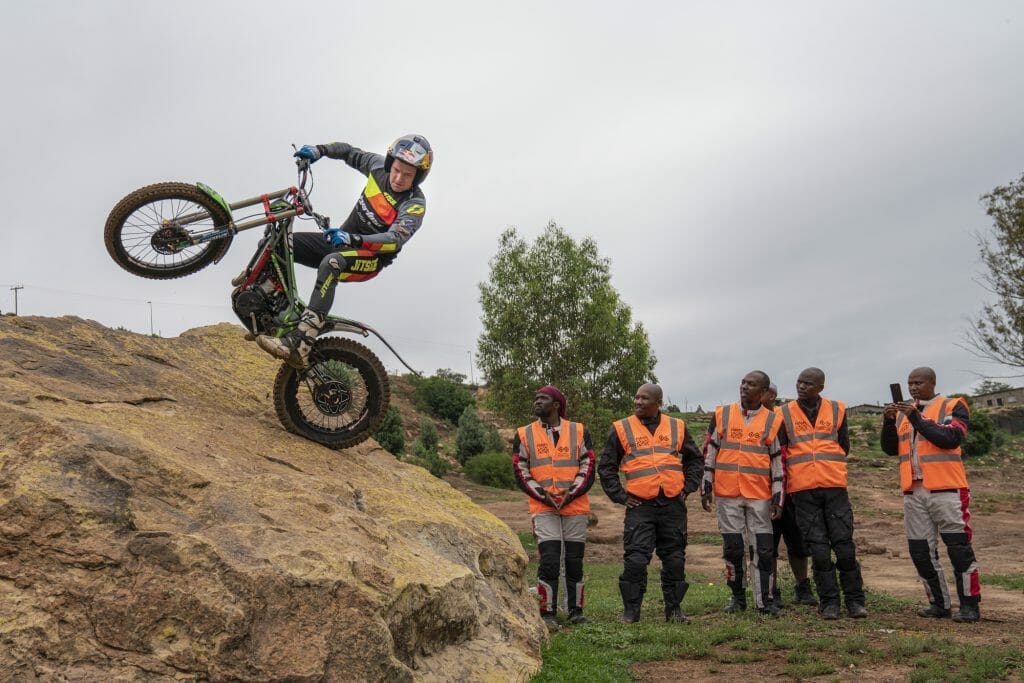
Holding their nerve on the steepest of gradients is essential of motorcycle riding health workers in Lesotho
Photographs by friend of Two Wheels, and multiple award-winning photographer Tom Oldham and photographer James Hole.
